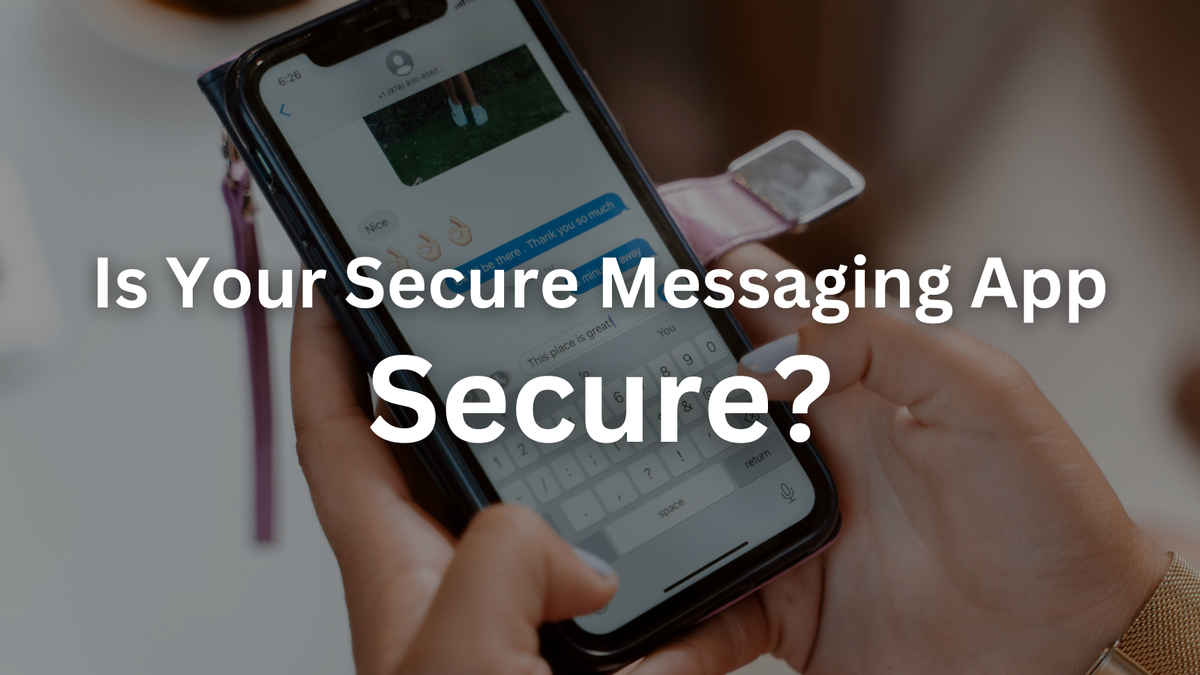Is Your Secure Messaging App Secretly Exposing Your Private Chats?

Your encrypted messages might not be as safe as you think—and it’s not the apps’ fault. The National Security Agency (NSA) recently warned that common settings on iPhones and Android devices could leave even "secure" messaging platforms like Signal and WhatsApp vulnerable to hackers. From linked devices to group invites, overlooked features are creating backdoors for cyberattacks. Let’s dive in.
🔒 The Hidden Risks: How Your Settings Undermine Encryption
The NSA’s alert highlights two critical vulnerabilities lurking in your phone’s settings:
- Linked Devices: Apps like Signal and WhatsApp let you sync messages across tablets, laptops, or other phones. But if a hacker links their device to your account, they gain full access to all your messages—past and future.
- Group Links (Signal-Specific): Hackers exploit Signal’s group invite links to secretly link their devices to your account. Clicking a malicious invite could grant them entry.
- No Default PIN Protection: Many users skip enabling app-specific PINs or screen locks, leaving accounts easier to hijack.
- Overlooked Permissions: Sharing contact lists or status updates with apps can expose metadata, helping attackers profile targets.
Underlying issue: Secure apps prioritize ease of use, but convenience often clashes with security. Users rarely audit settings, assuming encryption alone guarantees safety.
✅ NSA’s Fixes: Simple Steps to Lock Down Your Chats
Here’s how to close these loopholes, according to the NSA and cybersecurity experts:
- ✅ Audit Linked Devices Weekly: In Signal/WhatsApp, check Settings > Linked Devices and remove unrecognized ones. Your primary phone can boot intruders.
- ✅ Disable Signal Group Links: Under Group Settings, toggle off "Generate Link" to prevent invite exploits.
- ✅ Enable Screen Locks & App PINs: Add biometric or password protection within apps—don’t rely on your phone’s lock screen.
- ✅ Isolate Contacts: Avoid letting apps access your main contact list. Manually add trusted numbers instead.
Feasibility: These steps take minutes but require ongoing vigilance—a trade-off many users overlook.
⚠️ Why Most People Won’t Fix This (And Why Hackers Love That)
Despite simple fixes, widespread adoption faces hurdles:
- 🚧 Complacency: Users assume "encrypted" means "unhackable," ignoring settings.
- 🚧 Cross-Device Convenience: Syncing messages on laptops or tablets is a prized feature—few want to disable it.
- 🚧 Phishing Tricks: Hackers disguise malicious group links as invites from friends or colleagues.
- 🚧 App Limitations: WhatsApp lacks a group link disable option, forcing admins to manually approve members.
🚀 Final Thoughts: Security Is a Habit, Not a Feature
Encryption alone can’t protect you if your settings are leaky. Success hinges on:
- 📈 Regular Audits: Treat linked devices like door locks—check them often.
- 📈 Education: Apps should nudge users to review settings post-install.
- 📈 Balanced Design: Developers must prioritize security without sacrificing usability.
As the NSA/CISA guidelines emphasize, your habits are the final layer of defense. Will you update your settings today—or risk becoming the next headline?
What’s your biggest hurdle in keeping your messaging apps secure? Let us know!
Let us know on X (Former Twitter)
Sources: Matt Durr. NSA warning says your iPhone, Android settings may leave ‘secure’ messages open for attack, April 2025. https://www.mlive.com/news/2025/04/nsa-warning-says-your-iphone-android-settings-may-leave-secure-messages-open-for-attack.html










